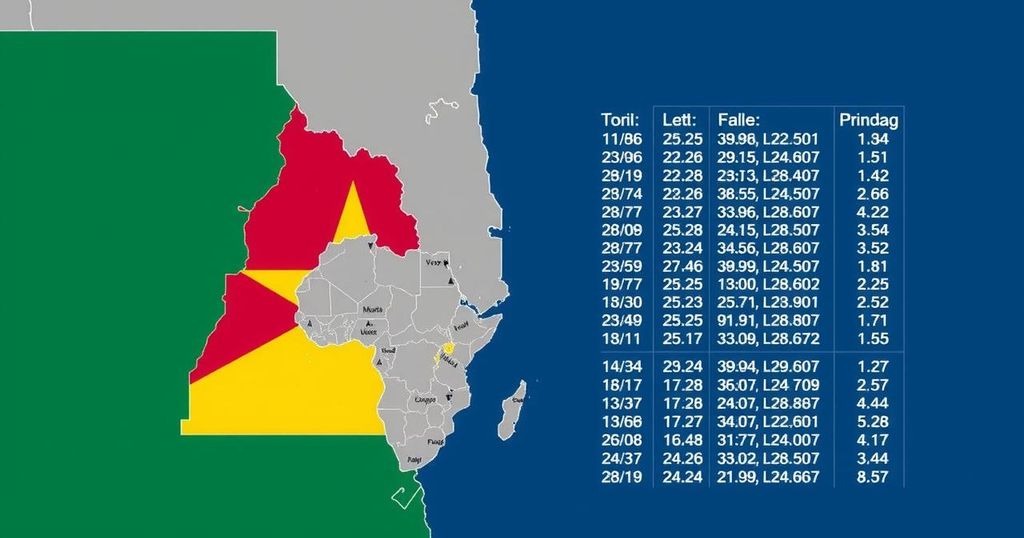Disputed Election Results Spark Unrest in Mozambique

EU observers report electoral results in Mozambique have been altered, with claims of violence leading to protests orchestrated by opposition candidate Venâncio Mondlane, following the assassination of his aides. Irregularities in counting and vote manipulation have been highlighted, while calls for transparency in the electoral process intensify amid unrest in major cities.
The European Union (EU) election observers have reported instances of manipulated voting results in Mozambique, coinciding with rising civil unrest. Opposition protests ensued after independent presidential candidate Venâncio Mondlane alleged that security forces were responsible for the assassination of his lawyer Elvino Dias and political figure Paulo Guambe last week, a claim the authorities refute. The official announcement of results from the election held on October 9 is expected by Friday. The EU observer mission released a statement on Tuesday highlighting “irregularities during counting and unjustified alteration of election results at polling station and district level.” Consequently, they have urged electoral bodies to ensure a transparent and reliable tabulation process, stressing the importance of tracking polling station results. Reports from the U.S.-based International Republican Institute indicate issues such as vote-buying, inflated voter rolls, and voter intimidation particularly in regions dominated by the ruling Frelimo party. The electoral body’s website, intended to publish national results, remains nonoperational due to a reported cyber-attack. Venâncio Mondlane, aged fifty, representing the opposition party Podemos, has already claimed victory and denounced the recent killings as politically inspired, asserting, “This was a crime committed by the defence and security forces. There’s no doubt about it. The special forces killed Elvino [Dias].” In response to these events, Mondlane organized protests across various cities against the killings and allegations of electoral fraud. Law enforcement employed live ammunition, tear gas, and armored vehicles to disperse the crowds in Maputo, where incidents escalated with blocked roads and other disturbances. Local media have reported that there were numerous arrests and multiple individuals sustained injuries during the confrontations. As the situation continues to unfold, there has been mounting call for accountability regarding the killings, with strong denunciations from notable figures including former President Armando Guebuza, as well as international bodies such as the United Nations and the European Union. Renowned author Mia Couto described the killings as a “crime against the nation.” The ruling Frelimo party has held power since the country’s independence from Portugal, and the presidential race has drawn attention with the imminent departure of President Filipe Nyusi, who is term-limited. The Frelimo candidate is Daniel Chapo, while Mondlane competes against Ossufo Momade and Lutero Simango.
Mozambique’s political landscape has been primarily dominated by the Frelimo party since the nation gained independence from Portugal. Recently, the country faced turbulent moments during its electoral process, highlighted by allegations of voter fraud and violence against political figures. The assassination of key opposition members has further exacerbated tensions and raised concerns regarding the integrity of the electoral system. Moreover, the calls for justice and accountability are pressing as various stakeholders, including former leaders and international entities, express strong condemnation regarding these events. The upcoming election appears to be a pivotal moment in Mozambique’s political history, given the impending transition in presidential leadership following the two-term limit of the sitting president.
To summarize, the recent elections in Mozambique have been marred by allegations of electoral manipulation as reported by EU observers, prompting opposition protests in response to violence against political figures. The call for a transparent electoral process is essential in restoring trust in Mozambique’s governance. As the political climate intensifies, the demand for accountability regarding recent violent incidents presents a critical challenge for the Mozambican authorities.
Original Source: www.bbc.com






